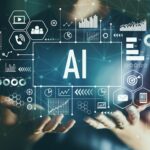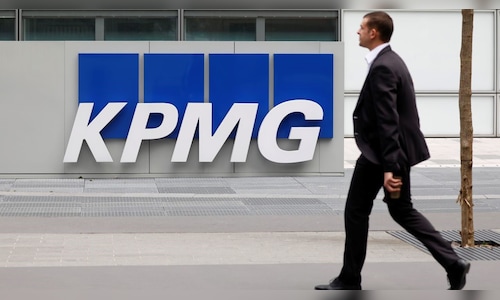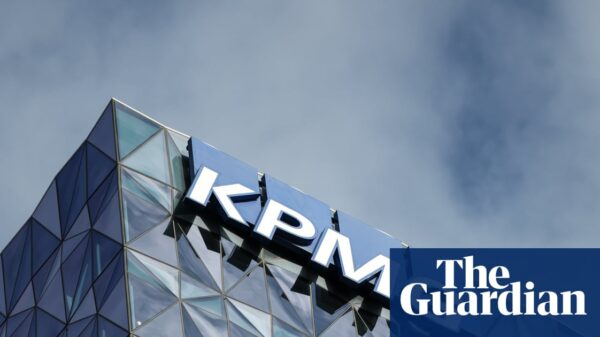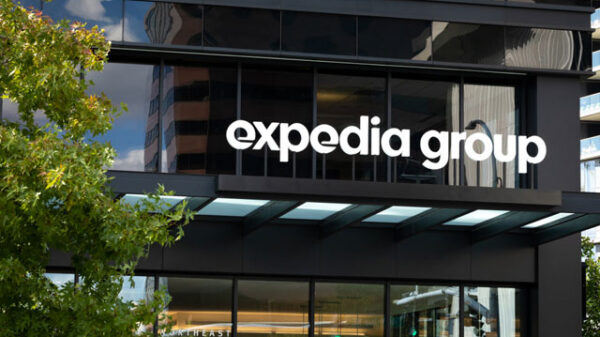In a significant move towards an AI-driven future, Meta Platforms Inc. has announced a transformative shift in its employee performance evaluation process. Starting in 2026, the company will incorporate ‘AI-driven impact’ as a fundamental metric in performance reviews, according to an internal memo obtained by Business Insider. This development reflects CEO Mark Zuckerberg‘s ambition to reshape Meta into an ‘AI-native’ organization, where proficiency in artificial intelligence becomes a career necessity.
The memo, authored by Janelle Gale, Meta’s head of people, indicates that employees will be assessed on their ability to effectively utilize AI tools to enhance productivity and outcomes. “AI-driven impact will become a core expectation,” Gale emphasized, marking a departure from traditional performance metrics to ones that celebrate technological innovation. This shift aligns with broader trends in the tech industry, where competitors are increasingly integrating AI into their operations.
Meta’s Aggressive AI Strategy
Meta’s initiative is part of a broader strategy to deepen its commitment to AI, including the development of tools like Metamate, an internal AI assistant designed to assist employees by compiling data from across the company. Employees are already being encouraged to utilize Metamate for drafting their performance evaluations, as outlined in coverage from India Today.
This change comes on the heels of significant layoffs, including approximately 600 positions cut from Meta’s AI division. Nevertheless, the company is doubling down on AI integration, with Joseph Spisak, product director at Meta’s Superintelligence Lab, describing Metamate as a “personal work archive” that helps employees efficiently summarize their contributions.
The timing of this announcement is particularly noteworthy. Following the layoffs, Meta has urged employees to adopt its AI tools for their year-end reviews, aligning with Zuckerberg’s objectives for increased operational efficiency. A report from OpenTools.ai previously revealed that Meta has raised performance expectations, requiring managers to label 15-20% of teams as ‘below expectations’ to streamline their appraisal processes.
Implications for Workforce Dynamics
For Meta’s approximately 67,000 employees, the memo signifies that acquiring skills in AI is becoming essential. Gale’s memo states that starting next year, effective AI utilization will be a “vital aspect” of performance assessments. This shift may foster innovation but also raises concerns about job security for those who struggle to keep pace with technological advancements.
Comparisons to other tech firms abound, with Salesforce hinting at potential software engineer replacements through AI, while OpenAI‘s Sam Altman has predicted major transformations in programming by 2025. At Meta, this initiative ties into Zuckerberg’s remarks regarding AI’s role in replacing mid-level engineering positions, thus fueling ongoing debates about workforce changes in the tech sector.
However, skepticism exists regarding reliance on AI tools for performance reviews. Reports from The Times of India indicate that some Meta employees have expressed doubts about the accuracy and trustworthiness of AI-generated evaluations.
Broader Industry Impact
Meta’s decision could have far-reaching implications across various sectors. According to Business Insider Africa, the company’s move to link employee performance with their AI-driven impact may set a new standard for productivity assessment in the AI era. This approach dovetails with Meta’s evolving culture, providing incentives for AI adoption through tangible rewards.
From a financial perspective, this strategy aligns with Meta’s objectives to enhance productivity and stock performance. GuruFocus.com notes that this focus on ‘AI-driven productivity’ may reassure investors amidst increasing competition from other tech giants like Google and Microsoft.
As discussions on platforms like X, formerly Twitter, reveal, the sentiment surrounding AI’s integration into performance evaluations is palpable. One user commented, “Meta is formally baking ‘AI driven impact’ into performance reviews from 2026,” underscoring the urgency for employees to incorporate AI into their work to thrive in the organization.
In conclusion, Meta’s overhaul of its performance evaluation system signals a pivotal moment in the tech employment landscape. As employees must adapt to the increasing importance of AI proficiency, the dynamics of the workforce at one of the world’s leading tech firms are poised for significant change. This shift not only reflects Meta’s strategic focus on AI but also raises critical questions about the future of work in an increasingly automated environment.
See also AI Enhances Supply Chain Resilience Amid Tariff Uncertainty with Real-Time Options
AI Enhances Supply Chain Resilience Amid Tariff Uncertainty with Real-Time Options Chinese Startups Target Global Expansion with AI, Robotics & Market Insights at XIN Summit
Chinese Startups Target Global Expansion with AI, Robotics & Market Insights at XIN Summit Cities Deploy AI Solutions to Enhance Road Safety Amid Rising Traffic Fatalities
Cities Deploy AI Solutions to Enhance Road Safety Amid Rising Traffic Fatalities Andrej Karpathy Foresees Self-Driving Cars Transforming Urban Living
Andrej Karpathy Foresees Self-Driving Cars Transforming Urban Living AI Tools Boost Real Estate Marketing: Mina Blazy and Carrie Little Share Effective Strategies
AI Tools Boost Real Estate Marketing: Mina Blazy and Carrie Little Share Effective Strategies





































































